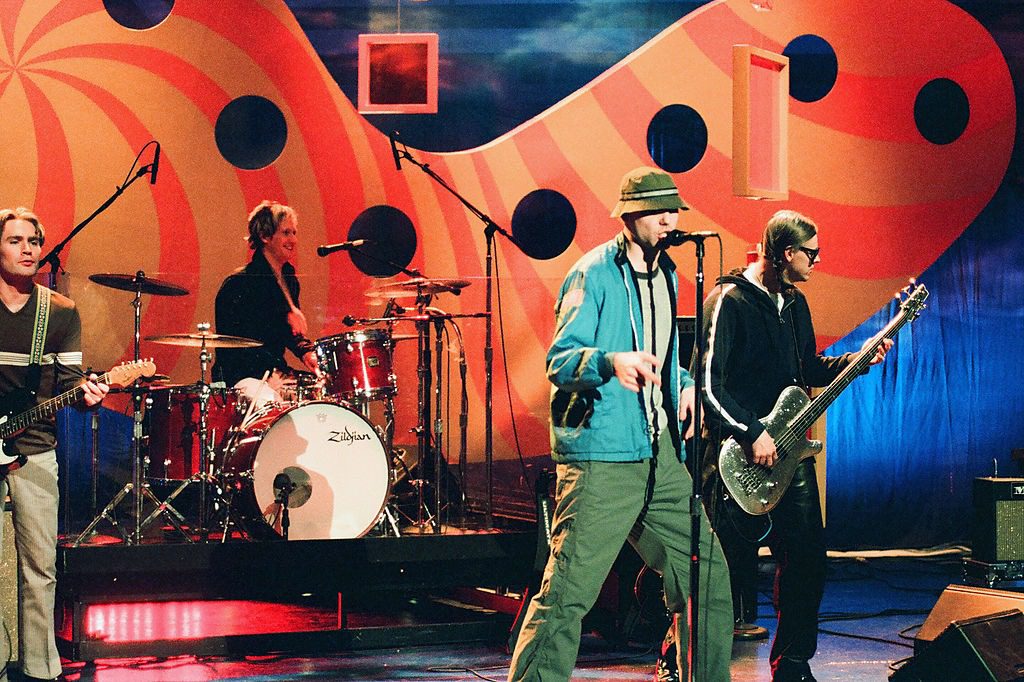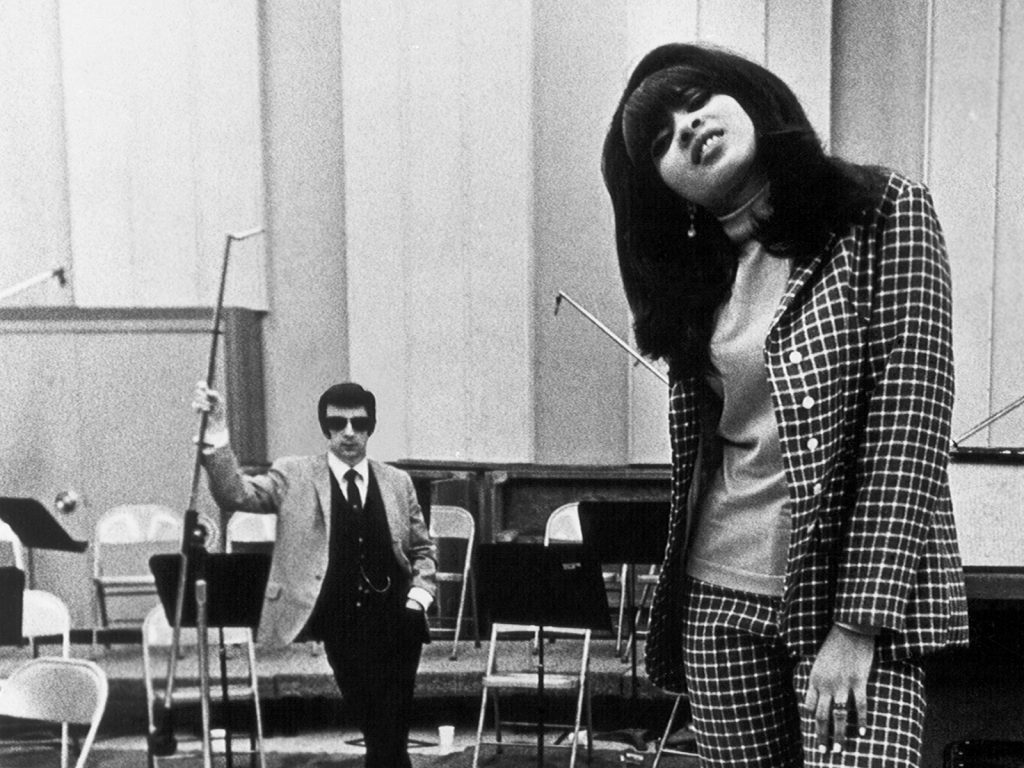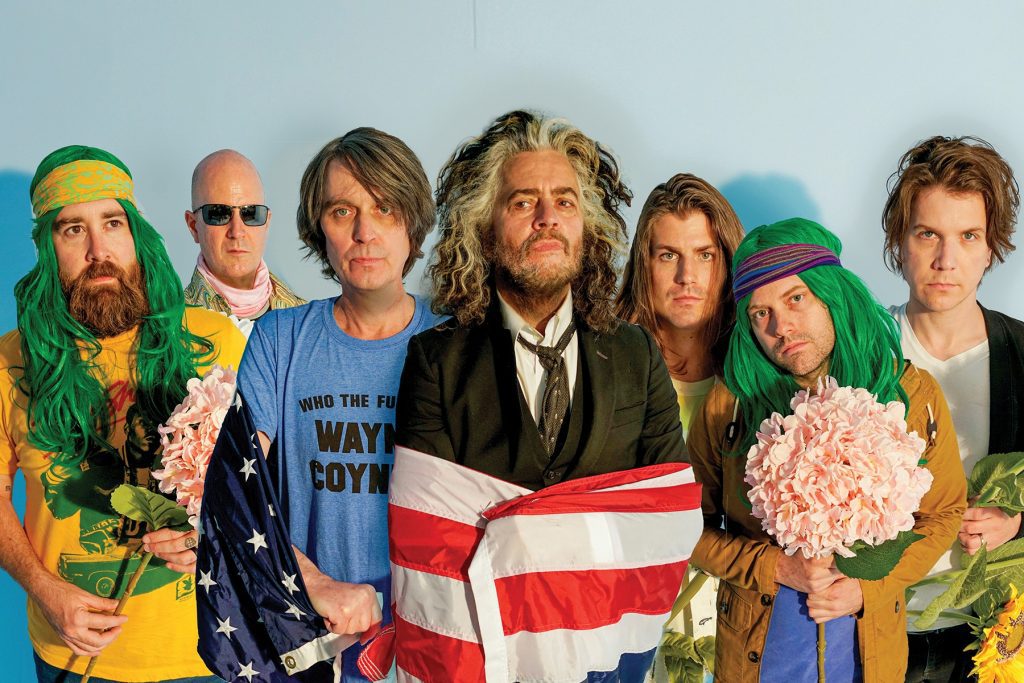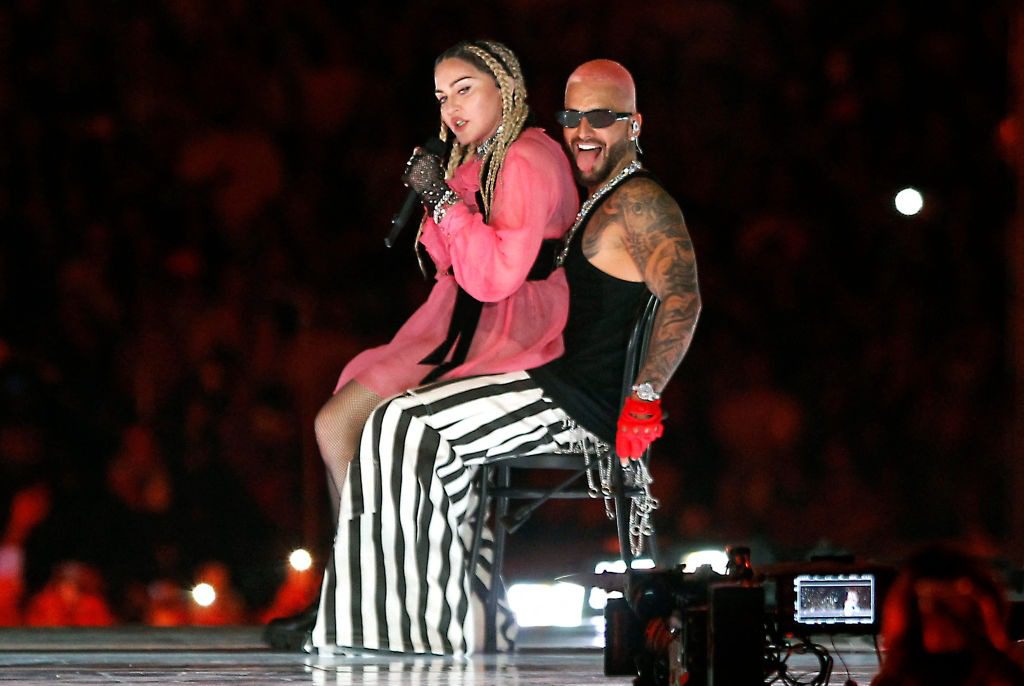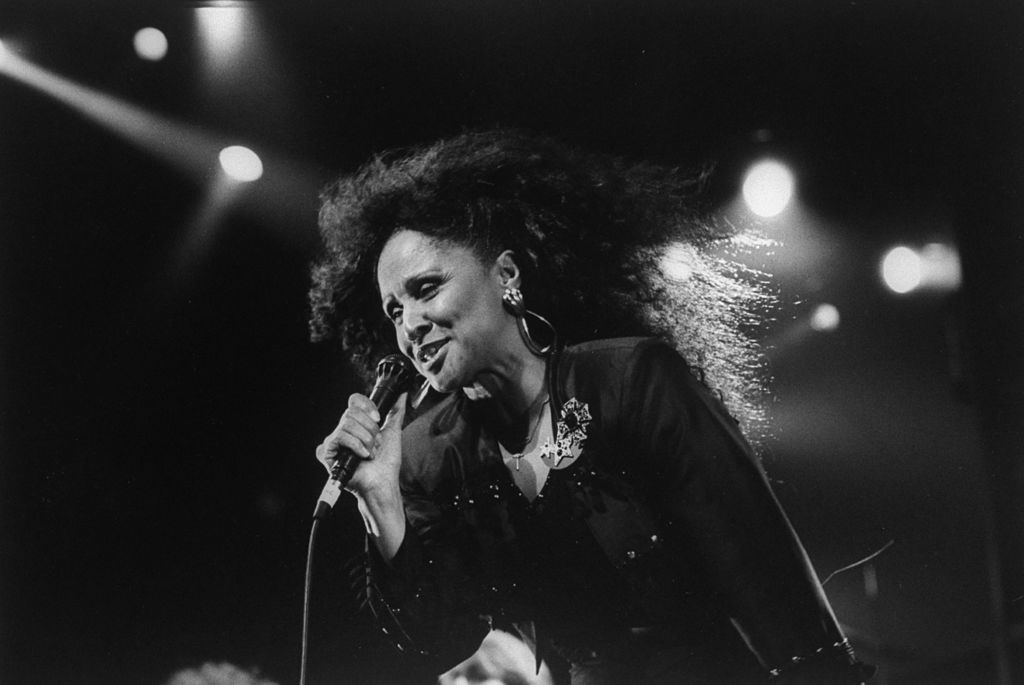
Darlene Love on Phil Spector’s Death: ‘I Feel Very, Very Sad’
Darlene Love never knew how she’d feel when Phil Spector died, but when the California Department of Corrections and Rehabilitation confirmed the producer’s death on Sunday, she mainly felt sorrow despite all the ways he mistreated her over the years. “My son called to tell me the news,” says the singer, who recorded classics like “He’s a Rebel,” “(Today I Met) the Boy I’m Gonna Marry” and “Christmas (Baby Please Come Home)” with Spector in the early Sixties. “I felt real bad. Then I thought about who he was and what he did because if there was no Phil Spector, there would be no Darlene Love.”
A few hours after the news broke, Love phoned IndieLand to talk about her long musical history with Spector, their split in the Seventies, a nasty legal battle in the Nineties and the murder that sent the producer to prison for the final two decades of his life.
I met Phil Spector in 1962. I was already a backup singer with a group, the Blossoms. We did a lot of recordings for Lester Sill. At the time, we didn’t know that was Phil Spector’s partner [in Philles Records]. We sang background for some of his groups, but none of them were successful. After knowing Lester for a year or so, he told us his partner was coming into Los Angeles and he wanted me to sing lead on a song.
blogherads.adq.push(function () {
blogherads
.defineSlot( ‘medrec’, ‘gpt-dsk-tab-article-inbody1-uid0’ )
.setTargeting( ‘pos’, [“mid-article”,”mid”,”in-article1″,”mid-article1″] )
.setSubAdUnitPath(“music//article//inbody1”)
.addSize([[300,250],[620,350],[2,2],[3,3],[2,4],[4,2]])
;
});
I was introduced to Phil and he taught me the song “He’s a Rebel.” Going into the studio, I knew that song was going to be under the name the Crystals. It was just another session. I just got paid extra for it, a lot extra. After that song became a hit, I signed with him. I was like, “This man knows what he’s doing.”
My first impression of Phil was that he was weird. I had worked with others producers and they all dressed normal in blue jeans. There was nothing big about them. They weren’t pompous. Meeting Phil was just the opposite. He had a suit on and was very well-dressed. He had on the shoes with heels that the guys in London were wearing. I thought, “This is a weirdo. Does he really know what he’s doing?”
We worked at Gold Star Studios and he took command of those sessions. And he worked in a very unusual way. Most people did everything at one time: The singers, the background, everything. But Phil split it all up long before anyone was doing that. He put the music on first, then he put the background and then put my lead on.
That was totally off the walls. When we saw what he came up with in the final product, we thought, “Wow! This is different!” It felt like a new thing that was going to be happening with music. He just did it with two tracks, which is unheard of.
He heard the music in his head and then got it one tape and one piece at a time. I’d watch him and was amazed at how he did it and how everyone fell into it. He loved having his musicians to add things to it. We had an arrangement. Jack Nitzsche had arranged the songs, but Phil would let the musicians put their little things on it too, like extra licks on the guitar or the bass.
“When we saw what he came up with in the final product, we thought, ‘Wow! This is different!’ “
The other thing he did that was unusual was he left everyone’s mic open. That’s where the term “Wall of Sound” came from because everyone’s sound was feeding into everyone else’s sound.
Early on, he gave me the name Darlene Love. My maiden name was Darlene Wright. He loved gospel singers, as did I, and there was a gospel singer named Dorothy Love Coates. He said, “Why don’t you change your last name?” I said, “What for?” Then he came up with Love. I said, “Why would you want me to pick the last name ‘Love?”
Then he told me about Dorothy Love Coates. I said, “Yes, I know her. I know those gospel singers back in the Fifties. You know that music?” He goes, “I love that music.” He started telling me about gospel people he went to see, like the Five Blind Boys and Sam Cooke with the Soul Stirrers. I said, “Wow, Phil!” That’s how I accepted the name.
Being around Phil taught me a lot. I said to myself, “If you’re going to keep this name Love, you better go have it legally changed to your name.” That’s what I did. I could just see Phil going years later, “That ain’t your name. I own that name.” I’d say, “Yeah, but guess what? It’s legally mine. You can’t have it.”
blogherads.adq.push(function () {
blogherads
.defineSlot( ‘medrec’, ‘gpt-dsk-tab-article-inbody2-uid1’ )
.setTargeting( ‘pos’, [“mid-article2″,”mid”,”in-article2″,”mid-article”] )
.setSubAdUnitPath(“music//article//inbody2”)
.addSize([[300,250],[300,251],[620,350],[2,4],[4,2],[3,3]])
;
});
The biggest hits we had were “He’s a Rebel” and “He’s Sure the Boy I Love.” They were not under my name, but today I get just as much from those songs as if they were truly mine; recorded under the name of Darlene Love, because that’s how my fans and people in the industry look at it. They were all great songs.
I first saw Phil’s dark side come out after he went to London. The Phil Spector I grew up with — the songs I recorded with him all the way to the [1963] Christmas album — was a happy-go-lucky guy. He played with the musicians and would come out in the middle of the floor. He was like the ringmaster at the circus. That’s how I always saw Phil. He used to call me “doll.” We’d have lunch. That’s the kind of relationship we had. We’d get away from everybody and go do those things. We had fun.
“I used to tell him all the time, ‘Phil, one of these days you’re going to pull this gun out and something is going to happen.’”
Once Phil went to London and came back, he was a completely different guy. That is when I saw the real nasty side of Phil Spector; the controlling part of Phil Spector. He wasn’t like that before. He was a pleasure to be around. He was fun to be around. He started telling me how to sing, making me repeat songs over and over or singing the same line over and over and over.
I’d be like, “Now I know I know these songs and I never had this trouble singing with you before. Phil, what is the problem?” “Well, I just don’t like how you sang that line.” I went, “OK… ” That went on for a couple of hours. And people were suddenly allowed in the studio that were never there before, like business people and members of the Beatles. He was trying to show his power to them. And I didn’t know that side of him. I used to think, “He’s treating other people like that, but he wouldn’t treat me like that because we have a completely different relationship.” But no. He turned on everybody.
When we worked together, he’d be like, “I don’t like the way you’re singing it. Sing it again!” When I was in the middle of singing it, he’d push the talk button and be like, “No! No! Not like that. I don’t want you to sing it that way!” I don’t work well with people pressuring me. I work better like, “Okay, let’s talk it over and see how I can do it better or the way you want me to do it.” Now that was all gone.
Around this time is when I started hearing about the guns. I remember going into a session one day and everyone was coming out like they were running from somewhere. I’m going, “What’s wrong?” They said Phil was in there with a gun. I went, “What?!” I said, “Okay, I’m going back home.” I never went into the studio. But the whole idea he was in there with a gun acting up? I said, “Not me. Guns don’t shoot. People shoot.”
I used to tell him all the time, “Phil, one of these days you’re going to pull this gun out and something is going to happen.” I used to tell him that all the time, not really believing that it would. I thought that if people pulled out guns and acted like that, it’s bound to happen sooner or later. I just never thought it was going to happen like it happened.
The last session we did together was “Lord If You’re a Woman” [in 1977]. That is when I did something no other artist had ever done. I was in the booth with earphones on. I said to myself, “This is not working.” I took the earphones off, put them down on the chair, picked up my coat and purse and just walked out.
blogherads.adq.push(function () {
blogherads
.defineSlot( ‘medrec’, ‘gpt-dsk-tab-inbodyX-uid2’ )
.setTargeting( ‘pos’, [“mid”,”mid-articleX”,”in-articleX”,”mid-article”] )
.setSubAdUnitPath(“music//article//inbodyX”)
.addSize([[300,250],[300,251],[3,3],[620,350]])
.setLazyLoadMultiplier(2)
;
});
That was the last time I saw Phil Spector for many years. I left him completely. I was like, “I’d rather be a background singer the rest of my life than put up with a producer acting like this just to get another hit record.”
I loved singing. That’s my life. I love entertaining and making people feel good. At that point, I wasn’t making them feel good because I wasn’t feeling good. That was the biggest reason I didn’t want to record anymore. I was still under contract with him, but I was like, “I don’t care anymore. I don’t want to record with him anymore. You can’t make me record.”
And even thought I no longer saw him, he continued to try and run my life. In the Eighties, I had moved to New York and I started doing Late Show with David Letterman with “Christmas (Baby Please Come Home).” He actually called the station and told them that if they kept allowing me to do the song on the show, he’d sue them because I was not allowed to sing that song.
This was after 20 years of my life with him and now here we are in the Eighties. I was like, “What the hell do you care about me singing this song? I’m making you money.” But it’s this whole idea of him trying to possess me and make me do what he wanted me to do.
I didn’t actually see him in person until he invited me to the Rock and Roll Hall of Fame induction when he got in [in 1989]. Phil never came over to me, but he was sitting at a nearby table with his lawyer. He said, “Come on, Darlene, let’s let bygones be bygones. Let’s bury the hatchet.” I said, “I have no hatchet to bury. This man owes me thousands of dollars. How come he can’t pay me?” He said, “Oh, come on now.”
And lord, he offered me $25,000 to sign off on everything that I would ever try to get from Phil Spector. I wouldn’t sign it. I just refused. I just said, “Are you crazy?” And let me tell you something, I needed the money. Twenty-five thousand dollars sounded real good at that time in my life, but I just refused to give in to him because I knew it would be to my detriment if I gave in to him. I would regret doing that if I ever thought about suing him. That’s the day I decided to sue Phil Spector.
“To this day, I always thought he respected who I was and my talents. That’s what he wanted to control: my talent.”
If he had left me alone, I probably would have never sued him. But he just kept on and kept on and kept on. I said, “The only way to get rid of this man out of my life is to sue him.” I knew I would win because everything I was doing was the truth.
We were in the courtroom together, but things felt different this time. Now I’m a grown-up woman and I’m in authority of my life — not Phil Spector — and there’s nothing he can do about it. People here know me. I have a name now and you cannot rule me.
blogherads.adq.push(function () {
blogherads
.defineSlot( ‘medrec’, ‘gpt-dsk-tab-inbodyX-uid3’ )
.setTargeting( ‘pos’, [“mid”,”mid-articleX”,”in-articleX”,”mid-article”] )
.setSubAdUnitPath(“music//article//inbodyX”)
.addSize([[300,250],[300,251],[3,3],[620,350]])
.setLazyLoadMultiplier(2)
;
});
When he got on the stand, that’s when I knew I was going to win the case. When he got on the stand and my lawyer was questioning him, he went, “Darlene Love doesn’t own these songs. I own these songs. She has no right to them.”
He was really out there. My lawyer said to him, “If it wasn’t Darlene Love, why didn’t you just make an instrumental?” He was just silent for a minute. He was like, “What do you mean?”
“When I heard he was arrested for murder, I said, “I knew this day would come. And it’s come.”
It was a week of back and forth with him on the stand and me on the stand. It took all I had to stay calm, and my lawyer warned me, “All you have to do is keep yourself calm. Don’t show any anger or bitterness.”
They gave me a tablet and a pencil to write with. If I felt like I was really going to get upset, I would just scribble on the pad like I was writing something, but I really wasn’t writing anything. I was trying to keep myself under control and not let him see that he was controlling me. I just never went there.
I won the case, but it took me a while to win the money. And the whole time, he never spoke to me. We were as far away from each other in that courtroom as the East is from the West.
But I was never afraid of him. I never thought he would do me any harm. I really did believe that. To this day, I always thought he respected who I was and my talents. That’s what he wanted to control: my talent. He lost that. That was the end of me and him.
Why I do I think he was so angry and disturbed? Drugs and alcohol. I think that played a big role in his life. And people would always ask me, “Why is he still doing this to you? Why is he still badgering you?” It was because someone else was trying to make me a star. That’s what the Late Show With David Letterman was doing. Phil Spector had nothing to do with it and he hated losing that control.
When I got into the Rock and Roll Hall of Fame [in 2011], he just about went nuts. That’s because he was on the Nominating Committee. Every time my name would come up, he would get upset. “She doesn’t deserve to get in the Rock and Roll Hall of Fame! How dare you?” When I got inducted, he was a very unhappy person. As I say, the game goes on.
When I heard he was arrested for murder, I said, “I knew this day would come. And it’s come.” I really, really did feel bad.
blogherads.adq.push(function () {
blogherads
.defineSlot( ‘medrec’, ‘gpt-dsk-tab-inbodyX-uid4’ )
.setTargeting( ‘pos’, [“mid”,”mid-articleX”,”in-articleX”,”mid-article”] )
.setSubAdUnitPath(“music//article//inbodyX”)
.addSize([[300,250],[300,251],[3,3],[620,350]])
.setLazyLoadMultiplier(2)
;
});
As far as our relationship goes, I had to learn, with the help of God in my life, that I cannot carry hatred around with me. That only affects me. And hatred can hurt you in all type of ways, physically and mentally. I definitely wasn’t going to give that to him. I had to do a lot of soul-searching. I had to do a lot of praying. I even prayed for Phil. I knew I couldn’t live this kind of life.
I wanted to be a happy and joyful person. Happiness is what keeps you well and helps you get along with people. You can’t always be thinking in the back of your head, “So and so did this to me. My career would be here if he hadn’t done this.”
I had to get rid of all that from me and just think about what he did. And if it wasn’t for Phil Spector, I wouldn’t have a career. Here we are over 50 years later, and I’m reaping the benefits of what happened over 50 years ago.
I hate the fact that he died the way he did and I hate where he was when he died. Right now, I feel very, very sad.
